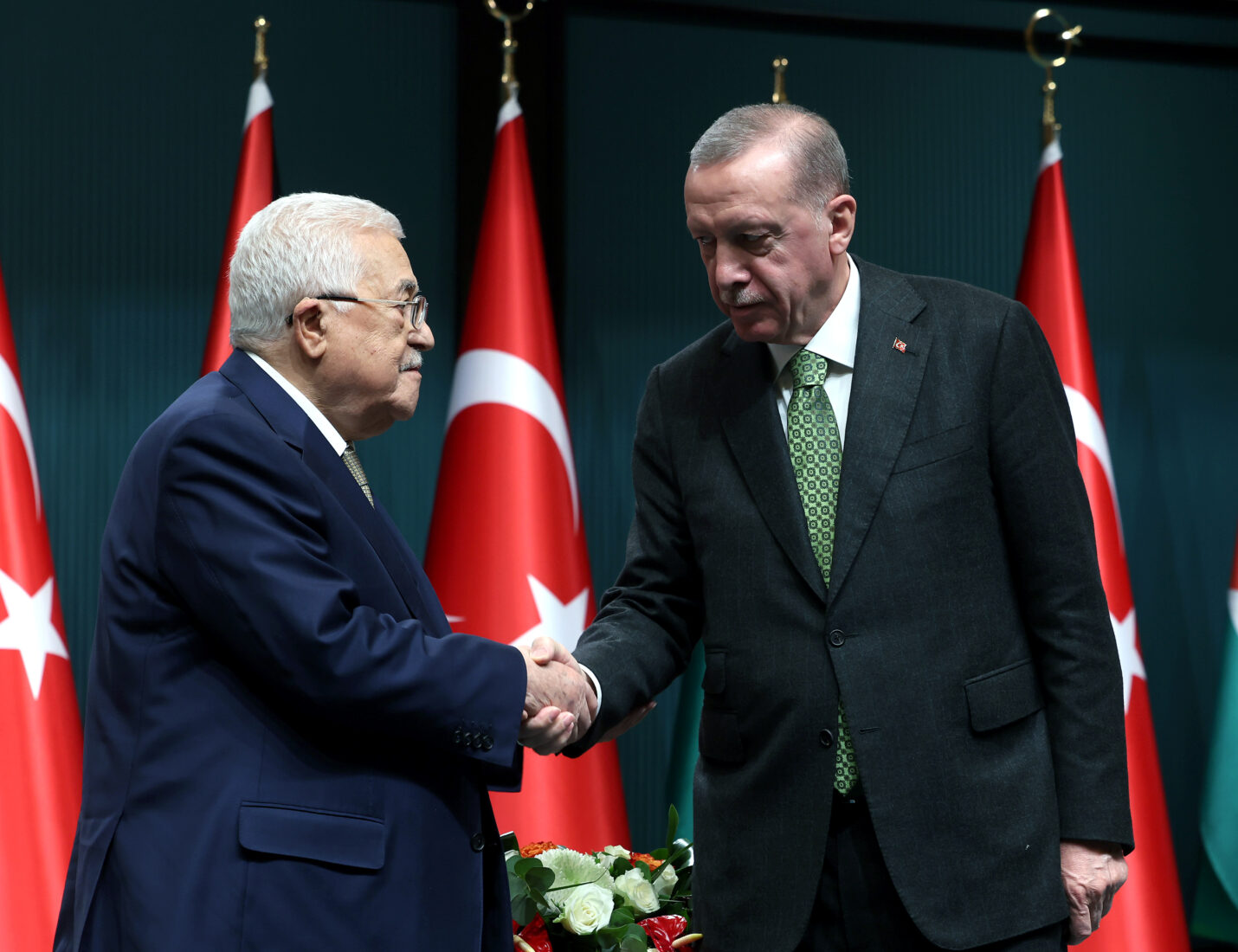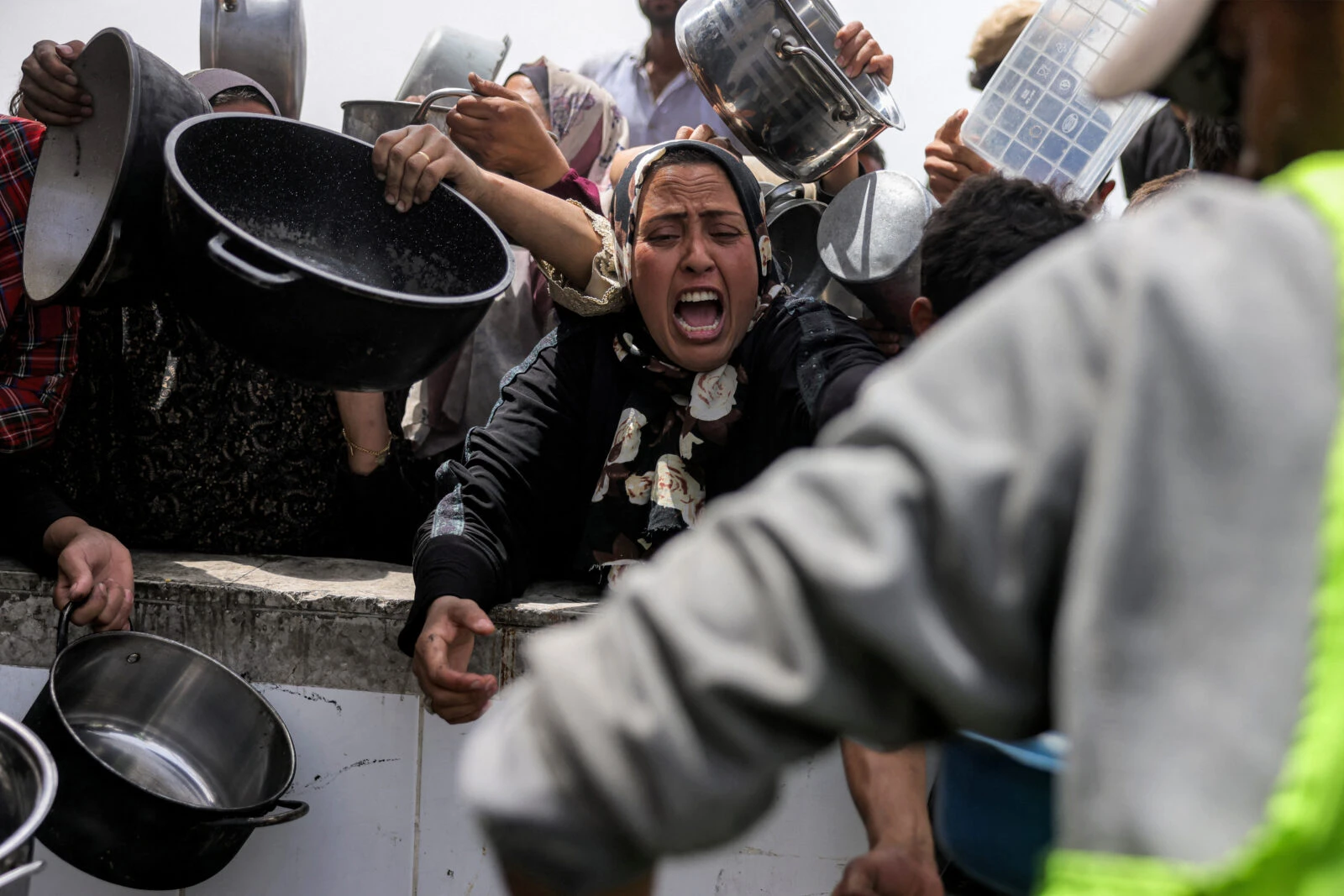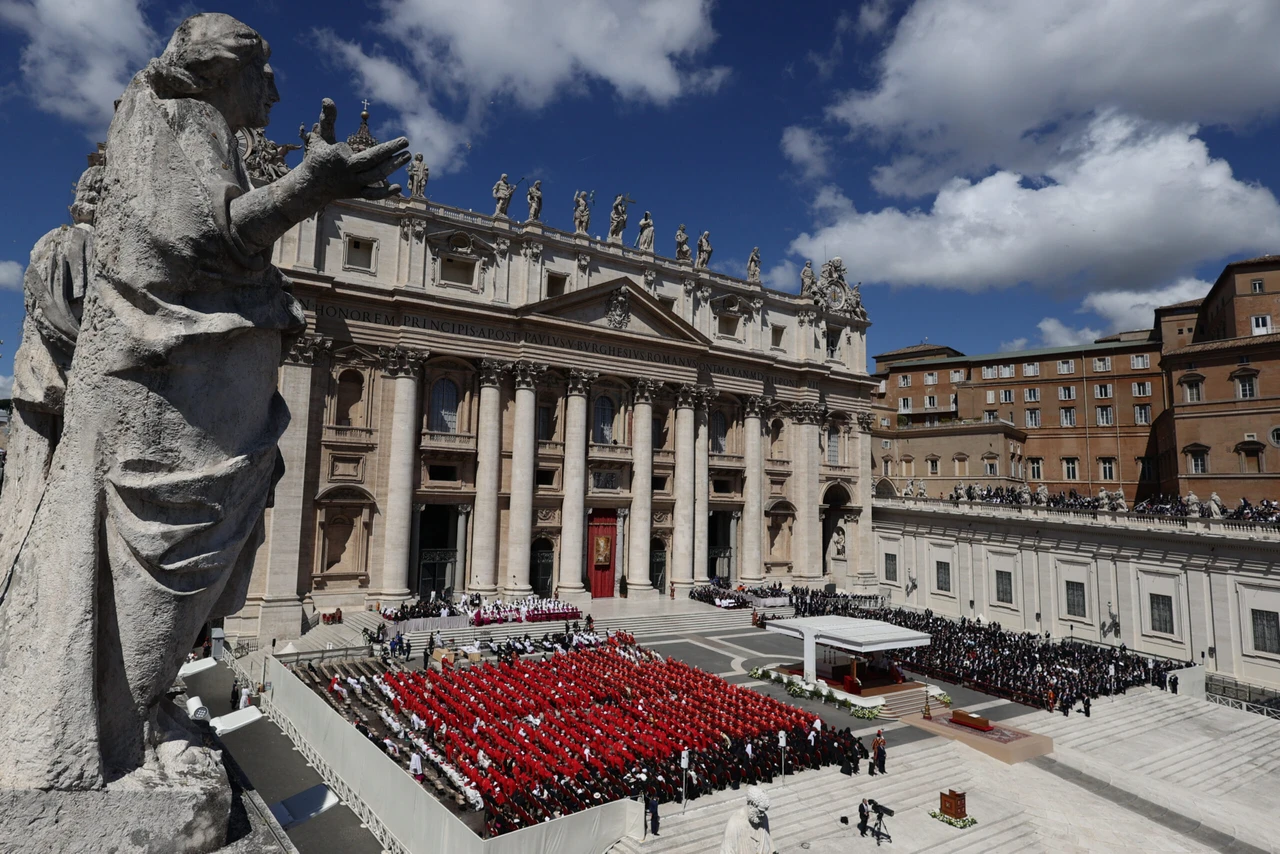Palestinian president Abbas names longtime close aide as possible successor
 This handout picture released by the Palestinian Authority's Press Office (PPO) shows President Mahmud Abbas (C) leading prayers next to Palestine Liberation Organisation (PLO) Secretary General Hussein al-Sheikh (3rd-L) during a meeting of the organisation's Executive Committee in Ramallah on April 26, 2025. (PPO Handout / AFP Photo)
This handout picture released by the Palestinian Authority's Press Office (PPO) shows President Mahmud Abbas (C) leading prayers next to Palestine Liberation Organisation (PLO) Secretary General Hussein al-Sheikh (3rd-L) during a meeting of the organisation's Executive Committee in Ramallah on April 26, 2025. (PPO Handout / AFP Photo)
Palestinian President Mahmud Abbas appointed Hussein al-Sheikh as the first-ever vice president of the Palestine Liberation Organization (PLO) on Saturday, positioning the longtime close aide as a potential successor.
The appointment follows the creation of the vice presidency during a PLO convention in Ramallah this week, a move that comes amid years of international pressure to reform Palestinian institutions and as Arab and Western powers envision an expanded role for Abbas’s Palestinian Authority (PA) in the post-war governance of Gaza.
“Palestinian president Mahmud Abbas appointed Hussein al-Sheikh as a deputy (vice president) of the PLO leadership,” PLO Executive Committee member Wasel Abu Yousef told AFP.
Veteran Fatah leader positioned for succession
Sheikh, 64, a veteran figure in Abbas’s Fatah movement, has held key posts in recent years, including PLO Executive Committee secretary-general and head of its negotiations department. His appointment consolidates his status as Abbas’s closest confidant at a time of growing calls for leadership transition.
A former prisoner in Israeli jails during the 1970s and 80s, Sheikh is fluent in Hebrew and considered an experienced negotiator. He was also recently tasked with overseeing Palestinian diplomatic missions abroad.
Palestinian analyst Hani al-Masri, however, criticized the appointment, arguing it reflects external pressure rather than genuine reform. “This is not a reform measure but rather a response to external pressure,” Masri said, stressing the need for a vice presidency within the PA itself.

Turkish FM Fidan congratulates new VP
Meanwhile, Turkish Foreign Minister Hakan Fidan held a telephone conversation with Hussein al-Sheikh, according to Foreign Ministry sources.
During the call, Fidan congratulated al-Sheikh on his appointment as the first-ever vice president of the PLO and wished him success in his new post.
Concerns over political maneuvering
The creation of the new role stirred controversy during the PLO convention, with several factions walking out in protest. Critics warned the move threatens PLO sovereignty and reflects foreign interference.
Analyst Aref Jaffal described the appointment as a “prelude to creating a successor” for Abbas, now 89. “The Palestinian political system is already miserable, so I believe that all these arrangements are a prelude to creating a successor to Abbas,” he said.
In the event of Abbas’s death or resignation, the vice president would be expected to serve as acting head of the PLO and the State of Palestine, which is recognized by nearly 150 countries.
Abbas has led the PA since 2005, following the death of Yasser Arafat, and has remained in power without a new presidential election since his initial four-year term ended in 2009.
The appointment comes as the PA faces severe financial strain, worsened by the ongoing war in Gaza following the events of October 7. International donors have increasingly tied financial assistance to demands for political and institutional reforms.
In a speech on Wednesday, Abbas argued that creating the vice presidency would strengthen Palestinian institutions and bolster efforts for international recognition of Palestinian statehood.
Some observers view the move as a strategic attempt by Abbas to project an image of decentralizing power without relinquishing his hold on leadership.

Hamas says PLO ignores national unity, slams the meeting
As many as 170 members present at the meeting or participating online voted in favor of the decision, while one member voted against and another abstained. The Central Council is a permanent body derived from the Palestinian National Council, the highest legislative body affiliated with the PLO, and has 188 members.
The Central Council meeting was held amid a boycott by major factions within the organization, including the Popular Front, the Democratic Front, and the Palestinian National Initiative, in protest against the absence of consensus and dialogue.
Meanwhile, Palestinian resistance group Hamas criticized the outcomes of the meeting, arguing that they ignored the requirements of national unity and stressed the need to rebuild the PLO in a democratic and inclusive manner.
The appointment comes amid Arab, regional, and international calls for the Palestinian leadership to implement political reforms within both the Palestinian Authority and the Palestine Liberation Organization.



